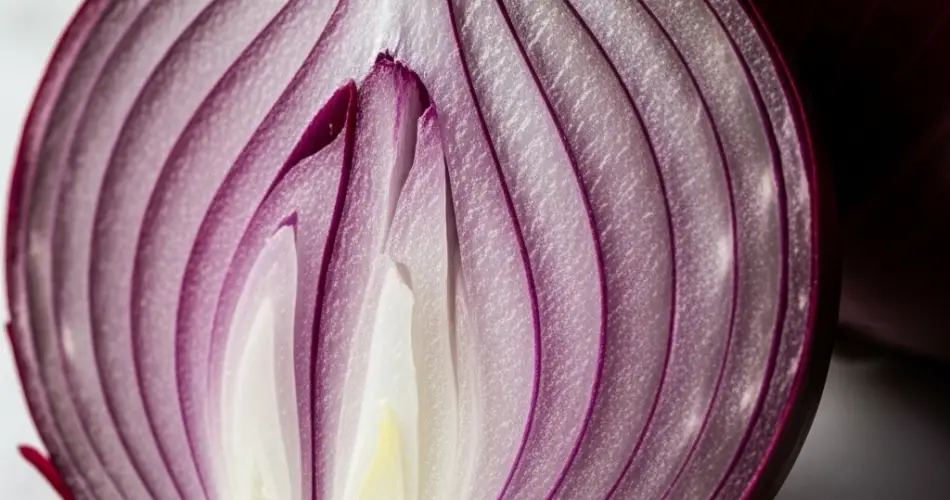Onions are a staple in the kitchen, lending their sharp, savory flavor to countless dishes. But beyond their culinary use, onions offer a lesser-known benefit: they can serve as a powerful, natural fertilizer for your garden. Packed with nutrients, antioxidants, and antimicrobial compounds, onions can enrich the soil, support healthy plant growth, and even deter pests—all without relying on synthetic chemicals.
Whether you’re using onion scraps in compost, creating a homemade onion fertilizer tea, or employing onions for their pest-fighting properties, this versatile vegetable can play an essential role in organic gardening.
Why Onions Make Great Fertilizer
Onions are rich in sulfur, potassium, phosphorus, and a variety of trace minerals that plants need to thrive. Their natural compounds—especially sulfur-containing ones like allicin—have antibacterial and antifungal properties, which can help suppress soil-borne diseases and pathogens.
Here’s what makes onions valuable in the garden:
-
Sulfur compounds: Support enzyme activity and plant immune responses.
-
Potassium: Promotes healthy root development and overall plant vigor.
-
Phosphorus: Encourages strong flowering and fruiting.
-
Antimicrobial effects: May help reduce harmful microbes in the soil.
-
Decomposable organic matter: Adds nutrients and improves soil texture when broken down.
By incorporating onions into your fertilizing routine, you’re not just recycling kitchen waste—you’re boosting your soil’s health and feeding your plants naturally.
How to Make Onion-Based Fertilizer at Home
There are a few simple ways to turn onion scraps into useful fertilizer for your garden. These methods are safe, eco-friendly, and cost-effective.
1. Onion Fertilizer Tea
This is one of the easiest and most effective ways to extract nutrients from onions and deliver them directly to your plants.
Ingredients:
-
Onion peels or chopped scraps (from 2–3 onions)
-
1 liter (4 cups) of water
Instructions:
-
Place the onion scraps in a container or jar.
-
Add water and let it soak for 24 to 48 hours at room temperature.
-
Strain the liquid and discard the solids (or add them to your compost pile).
-
Use the onion-infused water to irrigate the base of your plants.
Best for:
Vegetables, herbs, flowering plants, and fruiting crops that benefit from a potassium and phosphorus boost. Apply every 10–14 days.
2. Composting Onion Scraps
Onion peels and trimmings can be added directly to your compost pile, where they break down and contribute valuable nutrients to your compost mix.
Tips:
-
Chop or crush onion scraps to help them decompose more quickly.
-
Mix with other greens (like grass clippings) and browns (like dried leaves) for a balanced compost.
-
Avoid adding large amounts of whole or rotting onions at once, as the strong odor may attract pests.
Best for:
Enriching compost to be used later as a general-purpose soil amendment across your entire garden.
3. Onion and Garlic Pest Spray
Because onions share sulfur compounds with garlic, they can be used together in a homemade pest repellent.
How to make it:
-
Blend one small onion, a clove of garlic, and 2 cups of water.
-
Strain the liquid and pour it into a spray bottle.
-
Optionally, add a drop of mild liquid soap to help the spray stick to plant leaves.
Use on:
Plants affected by aphids, mites, or fungal infections. Spray on leaves (top and underside) in the early morning, no more than once per week.
Which Plants Benefit Most from Onion Fertilizer?
Onion-based fertilizer is generally safe for most plants, but some crops will benefit more than others due to their nutrient needs.
Great choices include:
-
Tomatoes and Peppers: Appreciate the potassium and phosphorus, which support flowering and fruiting.
-
Leafy Greens (Lettuce, Kale, Spinach): Benefit from added trace minerals and disease suppression.
-
Root Vegetables (Carrots, Radishes, Beets): Thrive with the added organic matter and potassium support.
-
Herbs (Basil, Parsley, Cilantro): Grow stronger and bushier with regular feeding.
Avoid using onion tea or sprays on very young seedlings until they’re well established. Always test sprays on a small section of a plant first to ensure there’s no adverse reaction.
Companion Planting with Onions
Even in the ground, onions can act as a form of natural pest control. When planted among other vegetables, they help deter pests like aphids, carrot flies, and cabbage loopers.
Good companion plants for onions:
-
Carrots
-
Lettuce
-
Strawberries
-
Beets
-
Cabbage
Avoid planting onions too close to peas and beans, as they can hinder legume growth.
Final Thoughts
The humble onion may not look like much, but it’s a surprisingly powerful tool for gardeners who prefer natural, sustainable methods. From enriching the soil and feeding your crops to deterring pests and diseases, onion-based fertilizers and sprays offer an easy way to recycle kitchen scraps and give your garden a healthy boost.
Whether you choose to make a simple onion tea, compost the peels, or blend it into a pest-fighting tonic, the results will speak for themselves. Stronger roots, healthier leaves, and more productive plants—thanks to the quiet power of the stinking rose’s close cousin.



